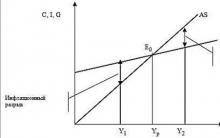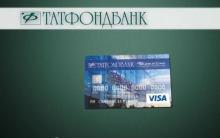In the event that you doubt whether it is worth opening a deposit in a Russian bank at interest at an unstable time for the economy, it will be useful for you to find out that any deposit in the bank is insured, which means that even if the license of a credit institution is revoked and the company goes bankrupt , money will be returned to you one way or another.
Who is involved in bank deposit insurance?
Bank deposit insurance deals with a special state organization – DIA (deposit insurance agency).
From each contribution, any russian bank must pay this organization for 0,13% , which forms the general insurance fund. If the bank has not passed the verification of this organization, then it cannot open deposits.
In any case, a bank client can check whether his deposit is insured on the agency’s website, where full information is provided.
What amount is returned?
 Insurance Amount, which limits the return of deposits - 700 thousand rubles. If your contribution does not exceed this amount, the money will be returned to you in full and in as soon as possible.
Insurance Amount, which limits the return of deposits - 700 thousand rubles. If your contribution does not exceed this amount, the money will be returned to you in full and in as soon as possible.
If the deposit amount was higher, this does not mean that the depositor can say goodbye to money - to return the remaining funds you will have to wait for the sale of the company's property or go to court with a lawsuit that will be satisfied in any case.
The amount of 700 thousand rubles is a limitation even if you have several accounts with deposits in the bank - this amount limits the payment from the bank, not from the account.
If the bank has a deposit and a loan for the same client, then only the difference will be returned to the client as the amount of the return. Money stored on bank cardsare also considered a deposit and are refundable upon occurrence insured event.
What cases are considered insurance?
In general, there are only two cases that are recognized as insurance and lead to payment from the DIA:
- Revocation of a bank license for financial transactions.
- Central Bank moratorium on customer satisfaction.
If your situation is one of the above, you can safely go to the territorial branch of the deposit insurance agency and demand reimbursement.
Your requirement must be satisfied within a period not exceeding 14 days.
Exceptions
 The procedure described above does not govern the relationship between the bank and the depositor in the following cases:
The procedure described above does not govern the relationship between the bank and the depositor in the following cases:
- The contributor is entity or SP. In this case, the depositor needs to stand in line and wait for payment longer than an individual.
- The depositor transferred the money to the bank under " trust management", That is, for the implementation of the organization’s experts profitable investment in securities.
- The depositor has opened a bearer deposit, that is, one for which rights may, if necessary, be transferred to a third party.
- The deposit was made in a foreign branch of a Russian bank. In this case, the return will be governed by the laws of the country where the branch is located.
Are deposit interests insured?
Whether interest on a deposit is added to the main deposit amount depends on the conditions of the legislation of the Russian Federation. Now he claims that at the time of revocation of the license the deadline for fulfillment of obligations is considered to have come.
The entire accumulated amount, including interest, is paid to the depositor.
Foreign practice
 The deposit insurance system operates in almost all European countries, moreover, in the countries of the European Union a single limit of return is 50 thousand euros.
The deposit insurance system operates in almost all European countries, moreover, in the countries of the European Union a single limit of return is 50 thousand euros.
In Russia, one of the lowest thresholds for return - only Lithuania can boast of stricter rules, where 3 thousand euros are returned in full and up to 22 thousand in the amount of 90%.
The Austrian authorities, for example, do offer a full refund of the value of any contribution.
However, even the modern threshold in Russia was adopted relatively recently - before, only the amount up to 200 thousand rubles was returned in full, and 90% was reimbursed from the balance up to 700 thousand.
Thus, crisis time is not a reason to refuse deposits at all.
This form of storing money will in any case be more profitable than cash, and the state takes the risk on your contribution.
Deposits are insured by the deposit insurance agency
Deposits are insured by the deposit insurance agency
The banking system of Russia provides for compensation if your bank suddenly burns out. If you entrusted your money to any bank in Russia (for example, you opened an account, made a deposit, you get a salary for plastic card), you automatically have the right to receive compensation in the shortest possible time up to 700 thousand rubles inclusive in case of revocation of a license from the bank (occurrence of an insured event).
For this purpose, there is a deposit insurance system (CER) - a special state program implemented in accordance with Federal law "About deposit insurance individuals in banks Russian Federation". Its main task is to protect the savings of the population placed in Russian banks. The work of CERs and payments is organized and carried out by the state-owned corporation Deposit Insurance Agency.
What deposits are insured?
Subject to insurance cash individuals, regardless of citizenship, who are in deposits and bank accounts, including:
- term deposits and demand deposits, including foreign currency deposits also;
- current accounts used for settlements on bank (plastic) cards, for receiving salaries, pensions or scholarships.
What funds are NOT insured:
Bearer deposits;
- funds transferred to the bank in trust;
- deposits in foreign branches of a Russian bank;
- funds in the accounts of individual entrepreneurs, lawyers, notaries and other persons, if these accounts were opened for them to carry out entrepreneurial and professional activities;
- money transfers without opening an account;
funds on depersonalized metal accounts;
How is insurance indemnity calculated?
Example 1 Viktor Ivanovich has two deposits in one bank. He opened the first one a year ago in a bank branch next to his house 600 thousand rubles at 10% per annum. He opened another deposit six months ago at a branch of the same bank next to work - 200 thousand rubles at 8% per annum. How much insurance will Viktor Ivanovich get?
We add interest to the incl. According to the terms of the contracts and terms of deposits.
600 + 60 (10% of 600) \u003d 660 (thousand rubles)
200 + 8 (8% x 0.5 from 200) \u003d 208 (thousand rubles)
We sum up deposits for all branches of the bank. We get 660 + 208 \u003d 868 (thousand rubles).
Victor Ivanovich in this example can count on the maximum possible insurance - 700 thousand rubles. the balance of funds in the amount of 168 thousand rubles, Viktor Ivanovich has the right to receive, declaring his claim as part of the bankruptcy procedure of the bank.
Example 2The wife of Viktor Ivanovich Margarita Pavlovna in the same bank has a salary card (account) with a balance of 200 thousand rubles. In the same bank, she took a loan. At the time of revocation of the license, the loan debt amounted to 30 thousand rubles. What will happen to the money of Margarita Pavlovna?
From the amount to salary card subtract the loan debt 200-30 \u003d 170 (thousand rubles)
General rules for calculating insurance
1. Interest on deposits (accounts) at the date of revocation of the license is calculated and added.
2. The remains of all treasures (accounts) opened by the depositor in one bank (including its branches and others structural units) are summed up
3. If the depositor received a loan from the same bank, the debt on it and interest on the date of revocation of the license when calculating insurance compensation deducted from the total liabilities of the bank to the depositor.
4. Foreign currency deposits (accounts) are converted into rubles at the exchange rate of the Bank of Russia on the date of revocation of the license.
How to get insurance
1st day - the day the license is revoked. Find out about the occurrence of an insured event.
14th day - find out about the place of payment (as a rule, payments are made in the same settlements where deposits were accepted)
Day 15 - come to the agent bank (the bank selected by the Agency for insurance) with a passport, fill out an application.
Get insurance: at bank account; in cash (as a rule, on the day of circulation, although the law provides for payments for three days).
Useful tips to bank depositors:
1. Make sure that the organization in which you intend to make a deposit is a member bank of the deposit insurance system (it has an appropriate license from the Bank of Russia). Some institutions disguise themselves as banks, offering high interest and silent about the absence of appropriate guarantees.
2. Carefully check the spelling of your name, passport data and mailing address in the deposit agreement, always inform the bank about the changes - this will allow you to easily find you among the depositors when paying insurance, as well as deliver you necessary information by mail.
3. Remember that not only the amount contributed to the deposit is insured, but also the “accrued” interest. They are calculated in proportion to the actual term of the deposit until the day the insured event occurs.
4. In order for your savings over 700 thousand rubles to be fully protected, it is advisable to place them in different banks.
5. Come for insurance at any time convenient for you. There is a year and a half for this before the end of the bankruptcy procedure. If possible, do not rush to get insurance on the first day of payments - you can meet large lines.
6. If you do not have the opportunity to contact the agent bank, send a statement certified by a notary to the Agency by mail and get insurance by postal order or to an account in another bank.
The data was taken from the promotional booklet of Avtogradbank in April 2010. Here is a brief information about the mechanisms of CERs. For full information, read the Federal Law "On Insurance of Individuals' Deposits with Banks of the Russian Federation"
Since 2015, Russian lawmakers have doubled the amount of state insurance compensation for individuals' deposits, up to 1,400,000 rubles, against the backdrop of panic among depositors. The bill was adopted by the State Duma of Russia. Bankers call these measures a “positive” fact, but they believe that this is unlikely to contribute to a significant influx of deposits.
The State Duma Committee on Financial Markets on December 18 decided to support bill No. 298254-6, which doubles the amount of state insurance compensation to investors, said Natalya Burykina, who is the head of the committee. The committee met in an unconventional mode, as it should be in such an acute moment. Firstly, the meeting began quite late - at eight in the evening. Secondly, to the surprise of journalists, the discussion went in a mode hidden from them. Mrs. Burykina herself asked the media representatives to leave the audience, substantiating the requirement with “damp” amendments.
In total, the official agenda of the committee meeting contained two bills: on increasing the amount of insurance compensation to individual depositors from 2015 to 1,400,000 rubles and on the formation of an inter-faction deputy group “to stabilize the situation in the domestic financial market”. But they discussed, according to journalists, not only the issues mentioned. Along with the committee representatives, the meeting was attended by Mikhail Sukhov (deputy chairman of the Central Bank), Alexei Moiseev (deputy finance minister) and Yuri Isaev (head of the DIA).
“Yes, we support the project, the committee is completely in favor,” Ms. Burykina’s comment on the amendments at the end of the meeting was laconic.
Amendments are made to the laws “On insurance of deposits of individuals in Russian banks” and “On the Bank of Russia”. They envisage doubling the value of insurance on deposits - from 700,000 rubles to 1,400,000. The bill introduced russian government already in June 2013, but then it was a million rubles.
The insurance amount on deposits in 2015 was doubled - up to 1400 thousand rubles
The need to urgently increase the amount of compensation appeared right now, mainly due to the outflow of citizens' money from ruble accounts - from the beginning of 2014 to December 1, the total outflow amounted to 216 billion rubles. And started in December financial crisis able to significantly increase this indicator. Bankers indicate the desire of Russians to transfer funds to foreign currency deposits, as well as invest capital in any property.
Anatoly Aksakov, who is the president of the Russia Association, believes that an increase in insurance will contribute to the influx of contributions to banking system. He cites the example of the 2008th. Then for October to banking sector there was an outflow of deposits by 7%. When was increased insurance amount up to 700,000, then in November 2008 the volume of deposits of the population increased by 10%. “Investors will instantly react, the panic will settle quickly. I already see how investors from the United States began to buy cheaper Russian securities. This means that the regulator has begun to take adequate measures, ”says Mr. Aksakov.
He also said that the system of deductions of credit organizations in the deposit insurance fund, most likely, will not change. In the event of a significant decrease in the DIA fund, it has the opportunity to attract a loan from the Central Bank. Such a rule is present in the law on CERs. As noted by Yuri Isaev, chief of the agency, the decision to increase insurance coverage deposits will affect the work of the DIA, but so far there is no need to contact the State Bank for additional liquidity.
As we have already said, representatives of many banks consider this a positive step. “This measure is a positive sign that increases the confidence of Russians in financial market. Currently, the average size of deposits in Russian financial institutions is in the range of 500,000 rubles. Such a modest figure is due to the fact that many investors, reducing risks, “crushed” deposits and opened them in various banks. With an increase in the insurance limit, these customers will be able to place more serious amounts on one deposit account, ”says Vasily Kuznetsov, who is a member of the board at Trust Bank.
“The increase in insurance against such events is additional guarantee for citizens on the part of the government, which, of course, will positively affect the placement of deposits in banks, ”says Svetlana Povikalova, head of the retail services department of Loko-Bank. Natalya Grigoryeva, head of the retail services block at Binbank, also spoke positively about the amendments. “In the current situation on banking market it’s relevant, it will increase public confidence in the financial sector as a whole, ”says Ms. Grigoryeva.
However, bankers specify that one should not expect a significant influx of funds from this measure. “It’s strange why they didn’t do it in a calm time? Why did you have to pass the law in such a hurry now? Part of the population is trying to manage to buy goods, while prices rose slightly. I’m not sure that raising the limit will lead to the fact that depositors will carry money to banks en masse, ”the top manager believes one of credit organizations from the top 30.
Oleg Vyugin, who heads the board of directors at MDM Bank, also does not believe that increasing the insurance amount is an effective measure. In his opinion, the outflow of deposits is mainly triggered by fluctuations exchange rates. “Raising the guarantee is certainly a pleasure for the investor. But in this momentif there is an outflow on deposits, it is caused not so much by the worries that the financial institution will go bankrupt, but by the confusion of investors, their lack of understanding of how to behave. Where to invest - in rubles or
If you are planning to open a deposit account and studying in connection with this the offers of various banks, you probably noticed that many credit institutions on their websites and information stands there is an inscription that “deposits are insured by the state”.
What kind of insurance is this? What does it protect against? And most importantly - in which banks are the deposits insured by the state m? Let's figure it out right now.
Who, whom, why and from what does he insure?
Since 2004, a deposit insurance system has been operating in our country (often its abbreviation is called CER), similar to similar projects operating around the world.
Its main task is to return the invested funds to depositors (private individuals, and from 01.01.2014 and individual entrepreneurs) upon the occurrence of an insured event, which in our country is the termination of the bank's activity - upon revocation of the license and bankruptcy.
This return is carried out by the state corporation, which was created specifically for these purposes, - “Deposit Insurance Agency”.
Are all deposit accounts insured?
According to the law adopted at the federal level at the end of 2003, On Deposit Insurance persons in banks of Russia are insured (automatically, i.e. without signing an insurance contract) are all deposits in the national and foreign currencyopen at a CERs participating bank.
To date, the last are all banks that accept funds from individuals. And there are 869 of them today (you can find the full list of banks in which the deposits are insured by the state, if you wish, on the Agency’s website by clicking on it at the link: http://www.asv.org.ru/insurance/banks_list/index .php).

Exceptions
The following are not covered by the Insurance Law, and, therefore, by CER:
1. money transferred to the bank for trust management;
2. electronic money intended for payments on the Internet without opening a bank account (on virtual cards);
3. depersonalized deposits (bearer);
4. funds stored outside the borders of the Russian Federation, even at the branches of residents;
5. deposits / accounts of notaries, lawyers and other persons, if they were opened, without the formation of a jur. persons for the purpose of conducting professional activities with their help.
Record navigation










Where to invest a million rubles?
I am looking for an investment project
Real estate investment
Available online deposits in VTB
To whom and on what conditions they give a mortgage in a savings bank